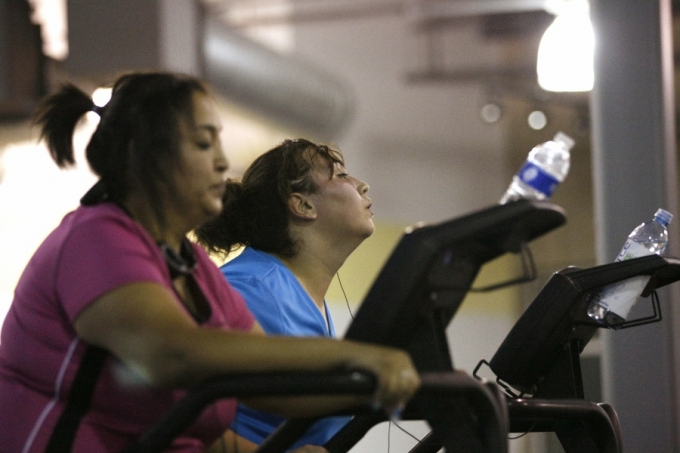The benefits of regular physical activity extends far beyond weight management as research shows that prescribing exercise as treatment to older women helps reduce the risk of death in them.
Loss of muscle mass in the body is inevitable with age, and one of the major causes of muscle loss is sedentary lifestyle. According to the American Association of Retired Persons, after the age of 50 seniors lose muscle mass at the rate of about half a pound per year, especially if they don’t exercise. Older people achieve significant health benefits from physical activity.
Researchers at the Queensland University of Technology, Australia, found that along with the conventional treatments for physical and mental health, moderate to high intensity tailored exercise program is needed to lower the risk of death in older women above the age of 50 years.
The study led by Professor Anderson and QUT’s Charlotte Seib, reviewed the five years of research that looked at the impact of exercise on the mental and physical health in women above the age of 50 years.
“Studies clearly show moderate to vigorous intensity activity can have mental and physical health benefits, particularly when part of broader positive health changes,” Professor Anderson said. “When once we thought that 30 minutes of mild exercise a day was enough to improve health, research is now telling us that older women should be doing at least 30-45 minutes five times a week of moderate to high intensity exercise and by that we mean exercise that leaves you huffing and puffing.”
The exercise program must be tailored to ensure that it is a high intensity activity needed to obtain the positive sustained effects of exercise.
The study clearly revealed that the high intensity exercise over a sedentary lifestyle significantly lowers the risk of death.
Older adults who adhere to regular physical activity also experience less disability, enhanced physical function irrespective of the body mass. The women who are most active are more likely to survive than those who are least physically active.
“We have an ageing population and as a result promoting healthy ageing has become an important strategy for reducing morbidity and mortality,” said Professor Anderson. “The research also linked exercise to improvements in mental well-being.” As high intensity exercise not just boosts physical health, but also brain health.
Researchers noticed that older women were capable of undertaking a range of activities that is beyond simple walking. The study highlights that mid-to-later in life women are seen jogging, running, hiking, swimming and riding.
Hence, the healthcare professionals should develop exercise programs that are home-based and easy to follow as part of everyday activities.
Source: science world report


